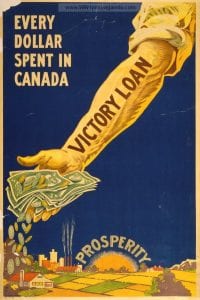Canada Responds to war
- To what extend did Canadians support the war (find primary evidence)?
I think Canada is very supportive of this war. They sent supply ships and soldiers to Europe. They recruited people for the army and trained them so they could help fight.
“Canadians marched and sang in the streets at the declaration of war in early August 1914. Those who opposed the war largely stayed silent. Even in Quebec, where pro-British sentiment was traditionally low, there was little apparent hostility to a voluntary war effort.” “Prime Minister Sir Robert Borden and his Cabinet quickly agreed to meet Britain’s request for a Canadian contingent of 25,000 troops. The government also passed the War Measures Act, giving it the authority to do whatever it thought necessary for the “security, defense, peace, order and welfare of Canada.”
– research from https://www.warmuseum.ca/firstworldwar/history/going-to-war/canada-enters-the-war/enthusiastic-reaction-to-war/
- Search for “Canada WWI war propaganda”, what are the posters trying to make you do and how are they supposed to make you feel? Find some and share your favourites.
Many of them try to get you to purchase Victory Bonds and tell people that they should join the army. A lot of them tell people to save and grow their own food.
- How did the war affect Canada’s development as a nation?
Evolution of a War Economy – “Due to the combined demands of military service, industry, and agriculture, unemployment had virtually ceased in Canada by 1916.”
Impressive Expansion of Scope and Production – “Under the supervision of Flavelle, the Council oversaw the impressive expansion of wartime production and produced a total of approximately $2 million worth of goods per day.”
Organizing Wartime Production – “Canada’s Minister of Militia and Defence, Sam Hughes, initially established a Shell Committee to coordinate production, but its failure to deliver on contracts led to angry recriminations between Canada and Britain and widespread rumours of corruption.”
Taxing Income and Profits – “Most Canadians paid no tax at all, and those who did pay, paid very little.”
Research from Financing the War
Through the First World War, the Canadians left a place in the world at that time, let people begin to understand Canada and recognize the power of Canada.
Conditions on the Front:
- What was it like to fight on land, sea and in the air?
War is dangerous. On the land, warriors often use trenches, but grenades are very dangerous for people in the trenches. And in the rainy days, there is a lot of water in the trenches, which is easy to breed bacteria. Long-term combat may lead to inflammation or disease of the joints of the feet. At sea, large battleships are mainly used for combat. The Germans used submarines but only used to attack supply ships because they had to surface to launch torpedoes. The war in the air is also very dangerous because the aircraft may malfunction, be shot down, or the ammunition is insufficient, but no parachute was invented at the time.
- What are some important Canadian contributions to the war on land, sea and in the air?
A lot of the best pilots were Canadian. It was a Canadian who shot down the Red Baron.
- What are the common themes in the poems? What do they tell you about how soldiers felt about the war?
Many poems talk about the death of people and the harsh conditions of war. Most soldiers think that war is terrible and not as great and glorious as they were told.



Good quote to support your claim that Canada supported the war. But just remember that the quote from War Museum isn’t a primary source.
With the posters, what devices are they using to try to get you to join the army or save food? How do you think the view would feel looking at the poster?
The last part of your development answer is a good point. Canada proved itself on the battlefield and made a name for itself, especially with the creation of the CEF.
The other common theme of the poems is the loss of innocence.
Well done again!